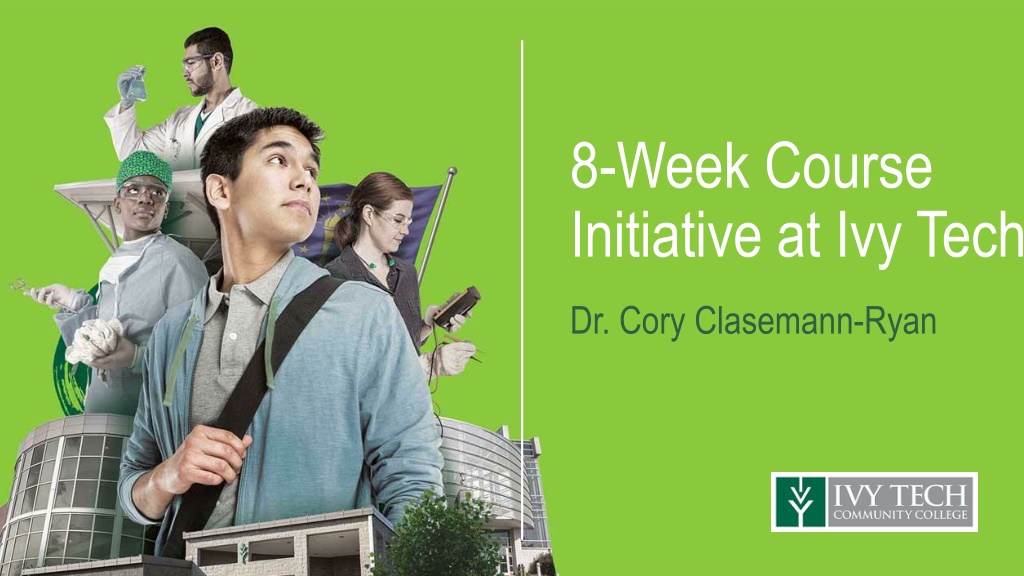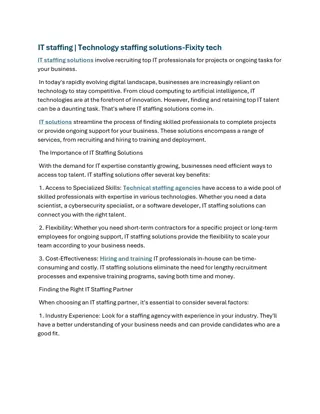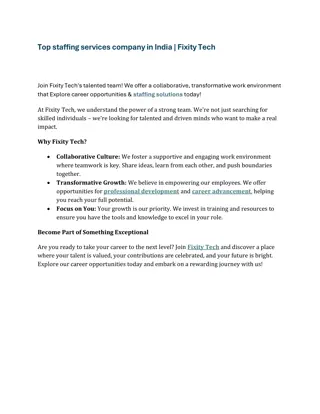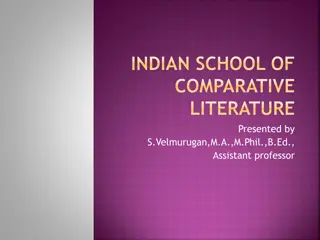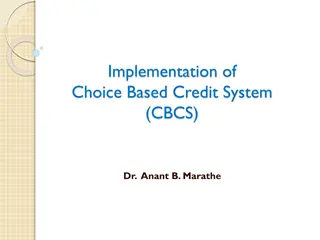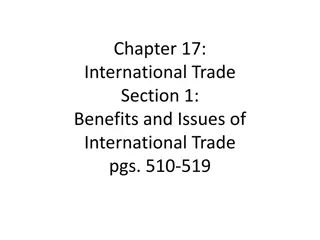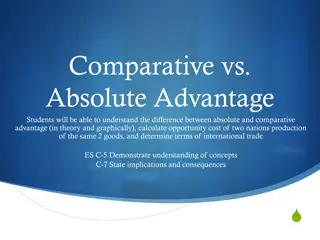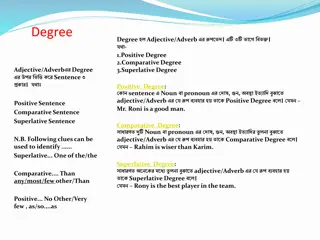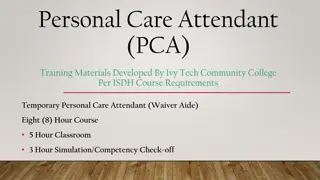Benefits of 8-Week Courses at Ivy Tech: A Comparative Study
Ivy Tech's 8-week course initiative, led by Dr. Cory Clasemann-Ryan, aims to increase student success through lower withdrawal rates. The white paper findings reveal that nationally, 8-week courses show higher success rates. Benefits include reduced burnout, continuous enrollment pathways, and faculty engagement. Implementation strategies include intentional processes, completion guides, and campus support. The shift to 8-week courses offers a clear pathway to completion and enhances student outcomes.
Download Presentation

Please find below an Image/Link to download the presentation.
The content on the website is provided AS IS for your information and personal use only. It may not be sold, licensed, or shared on other websites without obtaining consent from the author. Download presentation by click this link. If you encounter any issues during the download, it is possible that the publisher has removed the file from their server.
E N D
Presentation Transcript
8-Week Course Initiative at Ivy Tech Dr. Cory Clasemann-Ryan
Background Ivy Tech joined Achieving the Dream (ATD) in 2010 using data to increase student success Withdrawal rate (official and unofficial ) is between 15-20% each term Ivy Tech has offered 8-week courses for many years Historically 10-15 percentage point higher pass rate than in 16-week courses Withdrawal rates are lower Asked former VCAA to research and write a white paper Growing trend nationally to offer more 8-week courses Course success higher nationally
White Paper Findings Growing trend nationally to offer more 8-week courses Course success higher nationally and at Ivy Tech At Ivy Tech 8-week courses have lower withdrawal rates Approximately 10 percentage points lower in 8-week courses
Benefits of 8-Week Courses Students Only take 1-3 classes at a time No more class time over 16-week term Avoids burnout, which typically occurs around week 10 More on ramps don t have to wait until next semester to start or retake a class Faculty Only teach 2-3 courses at a time Avoid burnout Longer class sessions increase opportunities to integrate active learning
Intentional Process Findings presented to Cabinet and Executive Council in Nov./Dec. 2017 Faculty Council provided input and support in Nov. 2017 With fall registration opening in March 2018 campuses encouraged to increase offerings responsibly Added to Strategy 1.4 (educational pathways provide for continuous enrollment through completion) Visited Odessa College (2017 Aspen Prize finalist and Rising Star award winner) to learn best practices from a leading institution Summer 2018 added statewide co-leads and 80 campus champions During both 2018-19 and 2019-20 academic years internal mini-grants were offered to support faculty/staff in the transition
Completion Guides 1-20/21 sequence of courses for students to take Developed by curriculum committees Had existing semester plan as foundation Needed to evaluate for relevancy, sequence, and within 8-week structure Benefits to students Students have a clear pathway to completion Students always know what to take next, even if they stop out Reduces appearance of too many course options for students to consider, which can be overwhelming May provide opportunities to provide incentives for students who stay on track and are continuously enrolled
Fall 2019 Update Fall 2019: More than half (58%) of all courses offered in 8-week format Second year utilizing 8-week champions to support campus leadership and 8- week transition Revised mini-grants to support campus collaboration Beginning to address need to provide support services in new and innovative ways On-going faculty/staff professional development becoming part of our culture % of Courses in 8-Week Format 70% 61% 58% 60% 50% 39% 40% 31% 30% 19% 18% 18% 20% 10% 0% Spring 2017 Fall 2017 Spring 2018 Fall 2018 Spring 2019 Fall 2019 Spring 2020
Fall 2019 Grades Of the 14 core gateway courses when comparing 8-week vs. 16-week pass rates were 6 percentage points higher When comparing all 8-week vs. 16-week courses Withdraw rates (W grades) were 3.4 percentage points lower 8.4% vs. 5.0% FW rates (no longer attending class, but not officially withdrawn from the course) were 2.4 percentage points lower 10.1% vs. 7.7%
Gateway Course Pass Rates Fall 2019 Standard 16-week Term 68.6% 65.5% 68.9% 72.3% 58.0% 70.2% 70.7% 55.2% 77.7% 64.0% 54.7% 66.1% 71.4% 73.2% 8-Week Courses First 8-week Term Second 8- week Term Fall 2018 8- Week vs. 16 Week 0.7% 10.4% 0.9% 6.1% 6.9% 6.8% 6.7% 10.9% 3.8% 1.8% 3.0% 10.1% 1.2% 6.0% ACCT101 APHY101 BIOL101 COMM101 ENGL111 HIST101 HLHS101 MATH023 MATH122 MATH123 MATH136 PSYC101 SOCI111 All Courses 71.3% 77.8% 74.5% 80.4% 69.4% 80.9% 80.8% 68.5% 81.1% 69.7% 59.6% 80.0% 76.4% 81.1% 62.6% 69.4% 65.1% 76.7% 59.8% 69.1% 73.6% 57.5% 81.9% 62.4% 56.0% 72.8% 69.5% 77.2% 69.3% 75.9% 69.8% 78.4% 64.9% 77.0% 77.4% 66.1% 81.5% 65.8% 57.7% 76.2% 72.6% 79.2%
What Our Students Are Telling Us Richmond Medical Assisting students
Next Steps Continue to share data widely each semester and create dialogue around its meaning Continue soliciting feedback from students and faculty on 8-week courses There is no set target on how many classes will be offered in 8-weeks Goal is to move every class that can be transitioned in a responsible way that is best for the student There are very solid reasons why some classes at best offered in a 16-week format Campuses asked to determine what those are At scale in Fall 2021
